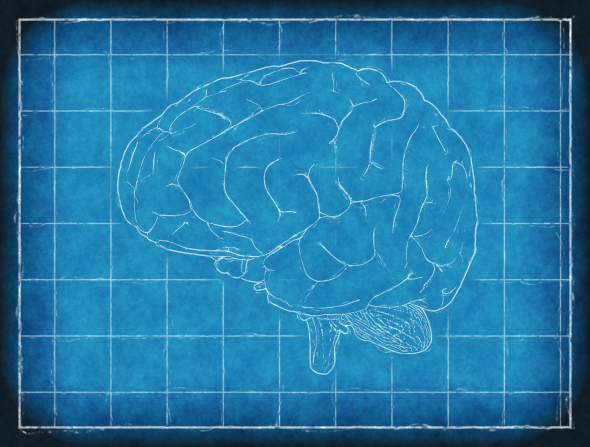Table of Contents
In a world where mental performance is highly valued, people are constantly seeking ways to enhance their cognitive abilities. From students cramming for exams to professionals striving for peak productivity, the quest for improved focus, memory, and mental clarity is never-ending. Enter nootropics – a category of supplements that claim to enhance cognitive function and support brain health. But what exactly are nootropics, and do they live up to the hype?
What Are Nootropics?
Nootropics, also known as "smart drugs" or "cognitive enhancers," are substances that are purported to improve cognitive function, particularly executive functions, memory, creativity, or motivation, in healthy individuals. These substances can range from natural compounds like herbs and botanicals to synthetic drugs developed in laboratories.
The History of Nootropics
The concept of nootropics dates back to the 1960s when Romanian psychologist and chemist Dr. Corneliu E. Giurgea coined the term "nootropic." Giurgea defined a nootropic as a substance that enhances learning and memory while being safe and devoid of significant side effects. His work laid the foundation for the study of cognitive enhancers and sparked interest in the development of new compounds.
Types of Nootropics
Nootropics can be classified into several categories based on their mechanisms of action and chemical composition:
- Natural Nootropics: These include herbs, vitamins, and minerals that are believed to support cognitive function through various mechanisms such as increasing blood flow to the brain or providing antioxidant protection.
- Synthetic Nootropics: These are pharmaceutical drugs developed to target specific neurotransmitter systems or brain pathways involved in cognitive function. Examples include modafinil, racetams, and ampakines.
- Nutritional Nootropics: These are dietary supplements that contain compounds like omega-3 fatty acids, choline, and amino acids that are essential for brain health and function.
How Do Nootropics Work?
The mechanisms of action of nootropics vary depending on the specific compound. Some common mechanisms include:
- Increasing neurotransmitter levels: Nootropics may enhance cognitive function by increasing the levels of neurotransmitters such as dopamine, acetylcholine, or serotonin in the brain.
- Enhancing cerebral blood flow: Improved blood flow to the brain can enhance oxygen and nutrient delivery, promoting optimal brain function.
- Protecting against oxidative stress: Some nootropics exert antioxidant effects, protecting brain cells from damage caused by free radicals.
- Modulating brain waves: Certain compounds may influence brain wave patterns, promoting states of alertness, relaxation, or creativity.
The Science Behind Nootropics
While the concept of using substances to enhance cognitive function is intriguing, the scientific evidence supporting the effectiveness of nootropics is mixed. While some studies have shown promising results, others have failed to demonstrate significant cognitive benefits. Additionally, the long-term effects and safety of many nootropic compounds remain poorly understood.
One of the most well-known and extensively studied synthetic nootropics is modafinil. Originally developed to treat narcolepsy, modafinil has gained popularity as a cognitive enhancer due to its ability to promote wakefulness and improve cognitive function. However, research on its effectiveness in healthy individuals is limited, and concerns about potential side effects and dependency have been raised.
Another class of synthetic nootropics, the racetams, includes compounds like piracetam and oxiracetam. These drugs are thought to enhance cognitive function by modulating neurotransmitter systems and improving neuronal communication. While some studies have reported cognitive benefits with racetam use, others have found little to no effect.
On the natural side, compounds like caffeine, ginkgo biloba, and bacopa monnieri have been studied for their potential cognitive-enhancing properties. Caffeine, for example, is known to increase alertness and improve attention, while ginkgo biloba has been suggested to improve memory and cognitive function in older adults. However, the results of studies investigating these compounds have been inconsistent, and more research is needed to fully understand their effects.
Safety and Side Effects
One of the most critical considerations when using nootropics is safety. While many natural compounds are generally considered safe when used as directed, synthetic drugs can carry a higher risk of side effects and adverse reactions. Common side effects of synthetic nootropics may include insomnia, anxiety, gastrointestinal discomfort, and headaches.
Additionally, the long-term effects of nootropic use are not well understood, particularly in healthy individuals. Some researchers have raised concerns about the potential for tolerance, dependence, and withdrawal with prolonged use of certain nootropic compounds.
Choosing the Right Nootropic
With the plethora of nootropic supplements available on the market, choosing the right one can be challenging. Factors to consider include:
- Your specific cognitive needs and goals
- The mechanism of action and scientific evidence supporting the nootropic
- The safety profile and potential side effects
- The reputation and reliability of the manufacturer
It's essential to do your research and consult with a healthcare professional before starting any new supplement regimen, especially if you have underlying health conditions or are taking medications.
Conclusion
Nootropics hold promise as tools for enhancing cognitive function and supporting brain health. However, navigating the world of brain-boosting supplements can be daunting, given the limited scientific evidence and potential risks involved. While some individuals may experience benefits from certain nootropic compounds, others may not see significant improvements or may even experience adverse effects.
Key Takeaways
- Nootropics are substances that claim to enhance cognitive function and brain health.
- The scientific evidence supporting the effectiveness of nootropics is mixed, and more research is needed to understand their mechanisms of action and long-term effects fully.
- Safety is paramount when using nootropic supplements, and it's essential to carefully consider the potential risks and benefits before incorporating them into your routine.
- Consulting with a healthcare professional can help you make informed decisions about which nootropics, if any, are right for you.







